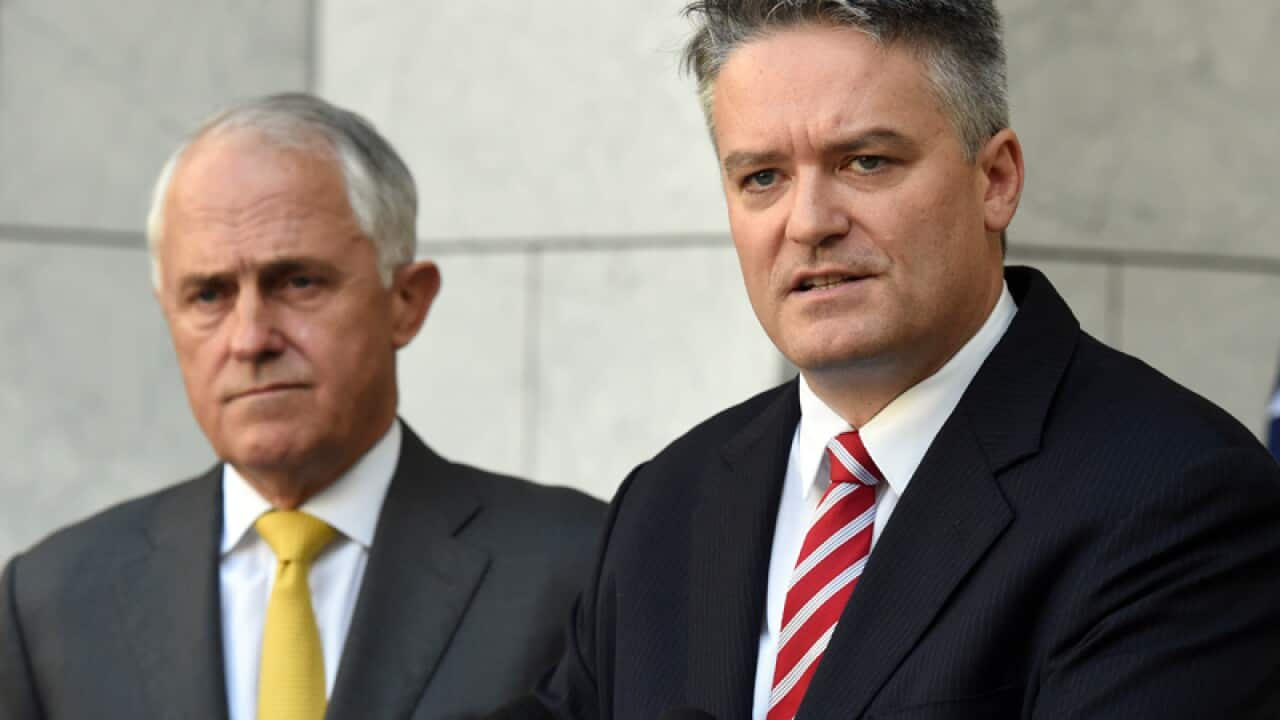Australia has been threatened with exclusion from a major international transparency group that includes the US, UK and France, following delays in making commitments for integrity in the public sector and accountability in business.
Finance Minister Mathias Cormann will attend this week’s Open Government Partnership (OGP) Summit as representative of one of just four countries still developing their commitments - formalised in "national action plans" - alongside Nigeria, Papua New Guinea and Bosnia and Herzegovina.
Of the 70 members in the group, some countries such as the US, Canada, South Africa, Italy and the UK are already on their third revisions of the plan.
The OGP works with governments with the aim of promoting transparency, empowering citizens, tackling corruption, and using new technologies to strengthen governance.
In November, a letter from the chief executive of the OGP warned that unless Australia's action plan was submitted this year, the country would be designated as “inactive” in the group.
"Countries more than four months late in submitting their National Action Plan will be considered acting contrary to the OGP process for that action plan cycle,” it stated.
"This letter is to inform you that, the Government of Australia has now acted contrary to the OGP process for three consecutive action plan cycles (2014, 2015 and 2016).”
A post on the government’s OGP website in response to the letter claimed “the Australian Government remains committed to submitting its first National Action Plan by the end of 2016 and building on it over time”.
The OGP requires each member to “co-create” its plans with civil society. Feedback on the government's draft plan, released in October, has been extensive and largely critical. The government faces a short timeframe to produce an adequately revised plan building on the 63 submissions received during consultation.
The criticism includes that the draft plan overstated Australia's reputation for transparency, that it requires stronger commitments to freedom of information law and that the process should include greater representation from business.
The draft plan includes 14 commitments in the areas of:
- Transparency and accountability in business,
- Open data and digital transformation,
- Access to government information,
- Integrity in the public sector, and
- Public participation and engagement.
Peter Timmins, a civil society representative on the government’s working group for the project, said he thought the final plan, if it is released in 2016, will reflect the interests of government more than civil society.
“At the end of the day, despite the words ‘co-create’ and ‘partnership’, the plan that will emerge here - like the plans that have emerged elsewhere in most cases - will be the government’s plan,” he said.
Spokesperson for Minister Cormann said the Minister remained confident that Australia will submit its plan by the end of 2016, despite the critical nature of many of the submissions.
Minister Cormann will represent Australia at the Ministerial Roundtable at the OGP Summit on Thursday.

